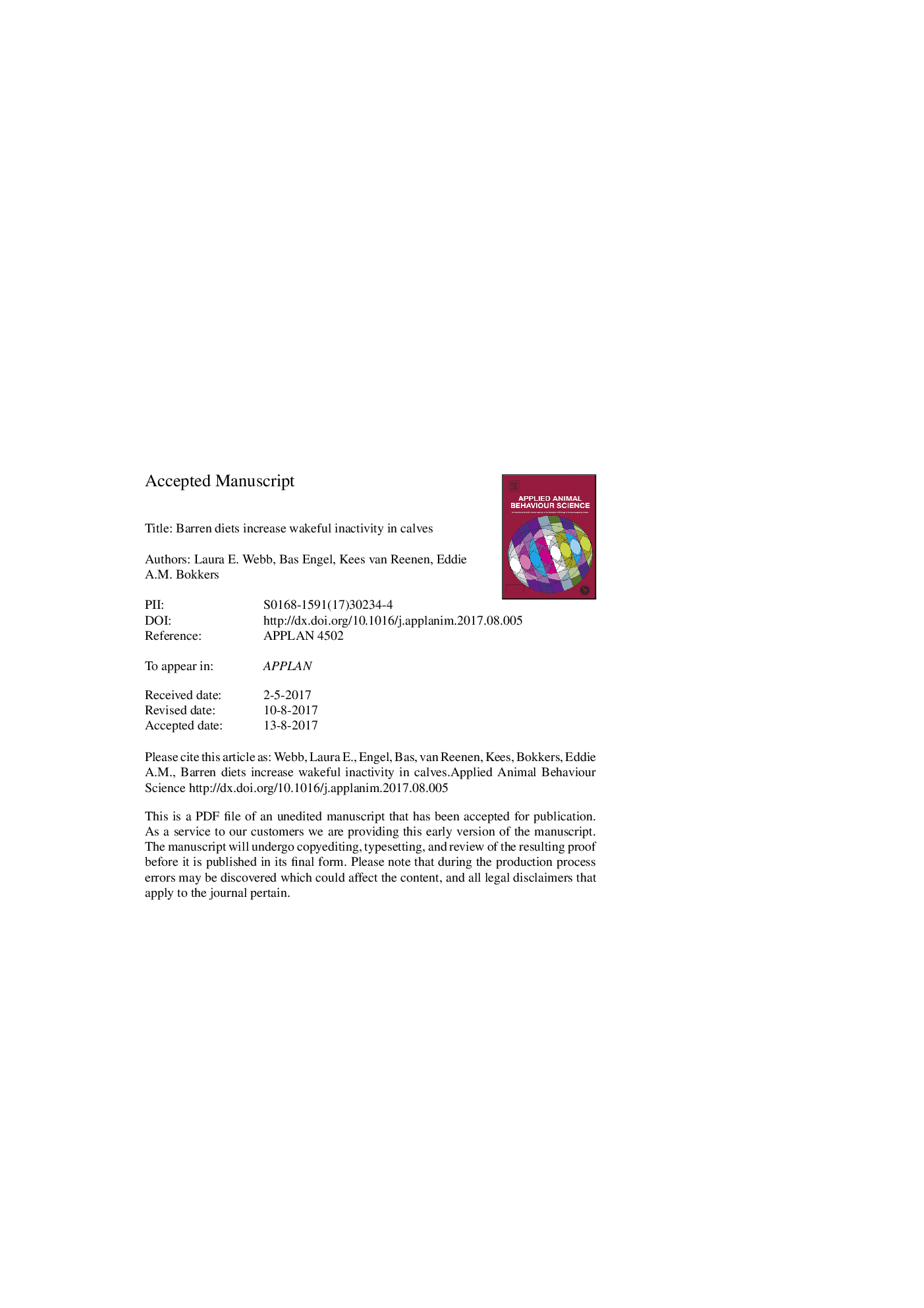| کد مقاله | کد نشریه | سال انتشار | مقاله انگلیسی | نسخه تمام متن |
|---|---|---|---|---|
| 8882877 | 1625309 | 2017 | 23 صفحه PDF | دانلود رایگان |
عنوان انگلیسی مقاله ISI
Barren diets increase wakeful inactivity in calves
ترجمه فارسی عنوان
رژیم های غذایی بارور در گوساله ها باعث افزایش فعالیت غیر فعال می شود
دانلود مقاله + سفارش ترجمه
دانلود مقاله ISI انگلیسی
رایگان برای ایرانیان
کلمات کلیدی
موضوعات مرتبط
علوم زیستی و بیوفناوری
علوم کشاورزی و بیولوژیک
علوم دامی و جانورشناسی
چکیده انگلیسی
Inactivity is a vastly understudied behavioural category, which may reflect positive or negative affective states in captive or domesticated animals. Increased inactivity in barren-housed animals, in combination with an increased or decreased interest in stimuli, e.g. novel objects, can indicate boredom or apathy. Another theory is that inactivity is an alternative strategy to stereotypies to cope with sub-optimal conditions. The aim of this study was to further our understanding of inactive behaviours and possible associated negative affective states in intensively raised calves fed different diets. In two separate experiments, Holstein-Friesian veal calves (NÂ =Â 40Â +Â 160) were fed barren or enriched diets: 1) imposed/restricted diet versus free dietary choice (experiment 1); 2) no additional straw versus ad libitum provision of straw (experiment 2); 3) low versus high solid feed provision (experiment 2); 4) bucket versus automated milk dispenser for milk replacer feeding, with high or low solid feed provision (experiment 2). Inactive behaviours, i.e. experiment 1: lie, idle and sleep; experiment 2: lie idle, stand idle, and sleep, were recorded at two ages (experiment 1: 12 and 26Â wk; experiment 2: 15 and 24Â wk) using instantaneous scan sampling. In experiment 2, latency to touch two novel objects was recorded at 15 and 24Â wk. No differences in inactivity were found between calves with a restricted or free choice diet (experiment 1). However, calves fed the more barren diets in experiment 2 showed more lying idle at 24Â wk of age, and calves with no ad libitum straw in particular, showed more standing idle at 24Â wk of age (PÂ <Â 0.05). No differences in latency to touch the novel objects were found. Therefore, although barren diets were generally associated with higher levels of inactivity, we found no support that this inactivity reflected boredom or apathy. Only weak associations were found between inactivity and stereotypies, providing only limited support for the idea that these constitute alternative strategies to cope with sub-optimal conditions.
ناشر
Database: Elsevier - ScienceDirect (ساینس دایرکت)
Journal: Applied Animal Behaviour Science - Volume 197, December 2017, Pages 9-14
Journal: Applied Animal Behaviour Science - Volume 197, December 2017, Pages 9-14
نویسندگان
Laura E. Webb, Bas Engel, Kees van Reenen, Eddie A.M. Bokkers,
